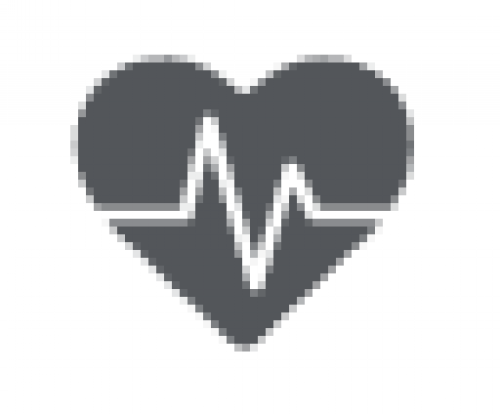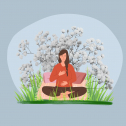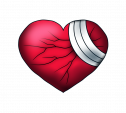Recent Posts
How to help victims and be a voice for anti-trafficking awareness in your facility DISCLAIMER: The content provided on this webpage is general in nature and does not constitute legal or medical advice. This webpage is for reference only. Laws vary by jurisdiction, locality, state, or country; please follow the laws of your specific jurisdiction ...
An easy first step is taking the HealthyNurse™ survey
Nurse finds balance, wellness, and growth in his connections with others
Nurse helps fellow nurses reconnect with their purpose and passion for health care
Nurse goes from the ER to implementing a multi-hospital well-being program
Use this guide as a springboard for personal and professional growth after a challenge
Creating a culture where nurses feel valued, supported, and empowered to lead change
Nurse relocates to U.S. to advance his education and help youth with addiction
Nurse cares for her community — and herself — as a mentor for American Indian nursing students
Regardless of your age, stage, or schedule, you can start — or restart — your wellness journey.
By Sadie Elisseou, MD Dr. Elisseou shares vital information about trauma-informed care and how nurses and their patients benefit from its use
Nurse finds healing and a fresh start through his connections with others
Driven to be a change agent for nurses managing substance use recovery
Guest blogger shares the results of her and fellow researchers’ recent study on breath work and nurse stress By Rajitha Bommakanti, BSN, RN, FCN, NBC-HWC
Guest blogger shares how forgiveness can benefit your physical health By Rajitha Bommakanti, BSN, RN, FCN, NBC-HWC
Strategies for finding work-life balance
Essential knowledge and action steps for nurses
From asthma to advocacy: A nurse’s journey into environmental health and encouraging future nurses to join the movement
Small changes have a big impact on environmental health
How 2 health care heroes support their communities — and themselves
Nurse’s desire to make an impact pushes him to find balance
Nurse uses faith to form connections and foster a positive work environment
Nurse finds healing for herself and others using the Theory of Human Caring
The toll of workplace violence on nurses...with mitigation strategies
How ethical nursing supports a patient’s health — and your own
Nurse turns her self-care crisis into a self-care coaching career
Nurse coach uses hypnosis to support clients’ mental, emotional, and physical health
By Melinda Kidder DHA, MSN, RN, CENP, MPHC
Common barriers to hydration and how to overcome them
3 tips to protect against mold and harmful germs
Professional networking and wellness support for Indian nurses
5 tips for nursing students hoping to work with a mentor
Peer support for nurses with substance use and mental health issues
Nurse uses physical activity to overcome mental and emotional fatigue
5 tips to build a more supportive nursing culture
Being in the moment can change your thought patterns
Nurse leads workplace well-being advocacy through the Professional Governance Model
Nurse inspires wellness and joy, even in the face of chronic pain and disease
How small wellness habits can have a big impact
Nurse uses food as medicine and finds relief from a painful health condition
Nurse finds a creative way to stay fit at work — and inspires others to do the same
Nurse advocates for planetary health — and the health of future generations
Guest blogger shares her insight and experience within this deeply fulfilling specialty
What to expect on a volunteer deployment for a disaster response assistance program.
3 reasons to volunteer with the Red Cross Disaster Health Services program and other disaster recovery assistance programs
Career-driven nurse shares how she’s building a balanced and satisfying life
Faced with a health crisis, nurse takes control of her well-being — and changes her life
5 reasons to get your steps with a buddy
Nurse shares past burnout experience and journey to healthier yet manageable practices By Kristen Neises
Spotlights

#healthynurse Spotlight
The #healthynurse Spotlight is a shout out to nurses who are making changes in their lives to improve their health and wellness. You can too! Share your story with us here.

Champion Spotlight
Learn more about the work our Champions are doing to support the health and well-being of their nurses.
FAQ
Blogs by Domain

Safety
Your safety matters. This domain covers a wide range of topics - from staying alert at the wheel to safe patient handling and mobility.

Rest
Rest breaks and healthy sleep are not only restorative - but are key to your health and to providing safe patient care. This domain addresses strategies and guidelines for restorative sleep, workplace breaks and napping, and managing shift work.

Quality of Life
Your work, home life, family, and other commitments frequently compete for your time and attention. This domain focuses on the elements that improve the quality and balance of your life including your physical, financial, social, emotional, and spiritual well-being.

Physical Activity
Nurses are often on their feet all day but fall short of recommended national guidelines for physical exercise. This domain includes strategies for overcoming barriers for guidelines and meeting exercise guidelines.

Nutrition
It isn't easy to find time for healthy eating. On average, nurses consume less fruits, veggies, and whole grains than other Americans. This domain covers recommended guidelines for dietary health, managing diet at work, and overcoming barriers to nutrition.

Mental Health
The nature and stresses of the nursing profession can take a toll on your mental health. This domain deals with your psychological affect and health. Mental wellbeing practices, stress relief resources, and personal stories are just some of the assets included here.





















































Recent Comments
@malia moon Great commitment! If you need motivation or ideas for getting more steps, you should check out the Physical Activity section of the website. Here's a few articles to get you started!
Stepping Out Together
Sneak Fitness Into Your Routine
@Ely3314 Excellent commitment! There are so many articles on improving sleep and getting more restful sleep on this site. Here are two to get you started:
Get Better Sleep And Improve Your Heart Health
How Can You Fall Asleep Faster?
@Emma H Kim Great commitment!! There are a lot of great recipes and ideas on the Nutrition section of this website. Here's some that may help with your goal:
Whole Food Plant Based Diet
Are Whole Foods On Your Menu?
@Alissa Sampson Excellent commitment! There are a ton of articles on improving sleep and getting more restful sleep on this site, these are two of my favorites below. But definitely check out the Sleep/Rest section!
Get Better Sleep And Improve Your Heart Health
How Can You Fall Asleep Faster?
@H3yNUrSe excellent commitment! It sounds like you have a lot going on, so it's wonderful that you are making sure to prioritize your well-being! There are a lot of great resources on this site, but I listed a few below that may help give you some ideas for finding a good balance!
Struggling to Stay Centered?
ANA Healthy Nurse, Healthy Nation® Spotlight:...